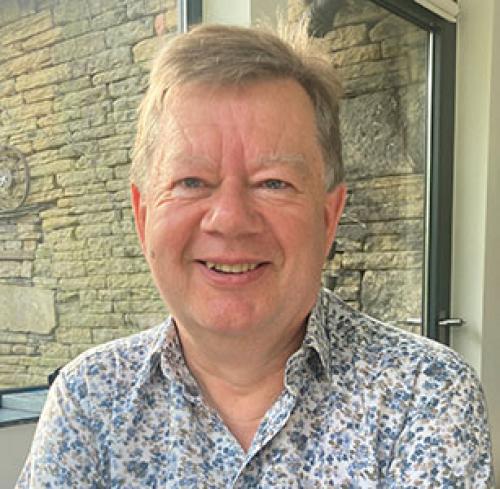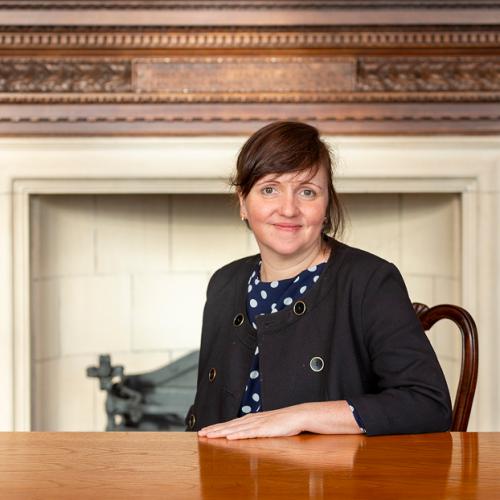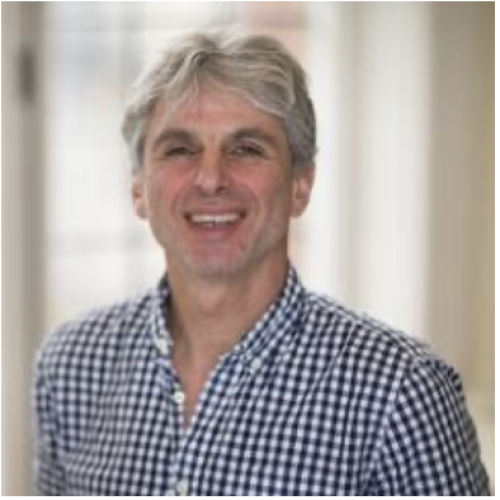Board of Trustee Directors
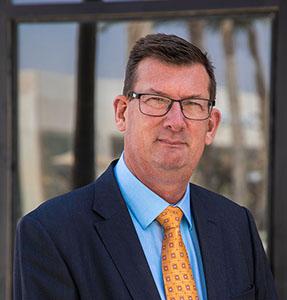
Professor Vince Emery (Chair of the Trustee Board)
Professor Vince Emery is President of the University of Hertfordshire's branch campus in Egypt and is a Visiting Professor at the University of Hertfordshire, UK.
Prof Emery graduated with a first class BSc in Biochemistry with Chemistry and PhD from the University of Southampton. His interests in virology started when he undertook a postdoc at the NERC Institute of Virology at Oxford where he worked on developing the world’s first baculovirus multiple expression vector system.
He was appointed Lecturer in Virology in 1988 and received his Professorship at UCL in 2000. His research has aimed to provide an interdisciplinary approach to understanding viral infections in the immunocompromised and in newborns (especially in Africa), with a particular focus on cytomegalovirus infections by combining viral replication assessments, immune responses and mathematical biology. During his career he has obtained in excess of £29 million of grants, has an H-index of 75 and his work has been cited over 20,000 times. Prof Emery has published 238 research articles, reviews, and books. In addition, Prof Emery is a named inventor on five patents.
Prof Emery is a Fellow of the Royal Society of Biology and a Fellow of the American Society of Transplantation.
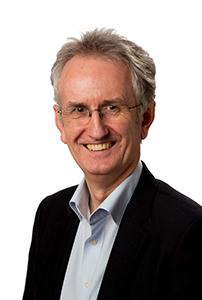
Professor Mike Turner (Deputy Chair of the Trustee Board)
Mike is a consultant currently working for the Neglected Tropical Diseases department of the World Health Organization on their snakebite initiative.
He is Honorary Professor at the University of Glasgow; a Member of Council at the London School of Hygiene and Tropical Medicine; and on the Science Advisory Board at the Glasgow Centre for Virus Research.
He is a former Director of Science and member of the Senior Executive Team at Wellcome, Europe’s largest biomedical research foundation. He joined Wellcome in 2014 as Head of Infection and Immunobiology and led on a number of portfolios including funding responses to emerging viral diseases – Ebola, Zika, Yellow Fever and Covid19. Approximately three quarters of the science funded by Wellcome is based in the UK, but Mike had particular responsibilities for Wellcome’s funding in Africa, India and South East Asia as well.
Before joining Wellcome, he was at the University of Glasgow where he held Beit, Royal Society and Leverhulme Fellowships. Latterly, he became Professor of Parasitology and held a number of managerial roles, including Head of Division. His research interests focussed on the trypanosome parasites that cause African sleeping sickness in humans and Nagana in livestock, the genomics of malaria parasites and the immunoepidemiology of schistosomes.
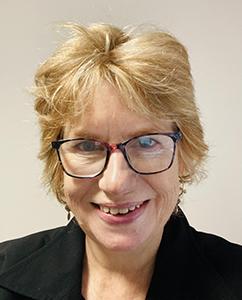
Dr Linda Magee OBE (Chair of Nominations and Governance Committee)
Linda is a life sciences sector specialist in the UK Government’s Department for Business and Trade. She supports the UK sector team and international network to identify opportunities for the UK economy and businesses in life sciences and healthcare.
Prior to her current position Linda was Chief Operations Officer of the NIHR Manchester Academic Health Science Centre (MAHSC), a national centre of excellence for translational medicine, and Commercial Director of the NHS Greater Manchester Academic Health Science Network (GMAHSN), part of a national network dedicated to the adoption of innovation into the NHS.
Linda was co-founder and General Manager of Manchester Biotech Ltd, the UK’s first dedicated campus based biotechnology incubator company and later set up Bionow®, a biomedical cluster organisation, while the Northwest Development Agency’s Sector Director for Life Sciences. In this role she also established the National Biomanufacturing Centre at Speke, now a commercial biopharmaceutical facility.
Following a PhD in Medical Biochemistry at the University of Southampton, Linda worked for a multinational healthcare company in technical and marketing positions. She was awarded an OBE in 2009 for services to biotechnology.
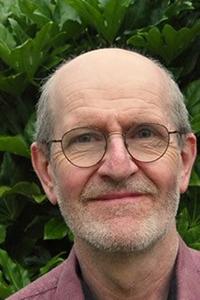
Dr Paul Logan (Chair of Risk and Assurance Committee)
Prior to his retirement in 2020, Paul was a Senior Civil Servant in the Health and Safety Executive (HSE) which he had joined as a Regulatory Scientist.
He subsequently trained as a specialist Inspector with responsibility for inspection of high containment laboratories. During his time at HSE, Paul chaired a number of industry and government committees and represented the UK in a European Medicines Agency working group on Gene Therapy, plus a World Health Organization group developing guidelines for the manufacturing of pandemic flu vaccines.
In his final post he was Director of the division in HSE with responsibility for regulation of major hazards industries, including chemical manufacturing, oil refineries, explosives manufacture and storage, and high containment laboratories.
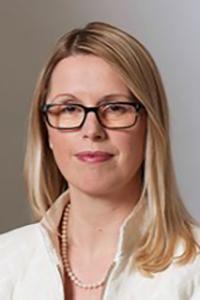
Alison Hardy
Alison is a Solicitor who qualified in England and Wales in 2000, specialising in complex high-value commercial real estate disputes.
She is Global Head of Real Estate Dispute Resolution at City law firm Ashurst LLP, where she is also a member of the Admissions Committee (a board subcommittee) which interviews lateral Partners and internal promotions to Partner. She co-leads the firms' Social Mobility and Inclusion initiative which is working to remove barriers to entry into and progression within the legal profession; and regularly speaks on the subject including for the Lord Mayor's Appeal.
During her legal career Alison has been Chair of the Property Litigation Association; enjoys the Freedom of the City of London, linked to her role as a Freeman of the City of London Solicitors Company; and attends the City of London Solicitors Company Land Law Committee.
Alison has chaired the UK RICS Dilapidations Conference for 4 years (2021 – 2024 inclusive). She speaks at conferences and is regularly quoted in both trade publications such as the Estates Gazette and Property Week, and national press such as The Times and The Financial Times.

Tim Harry
Tim is a scientist by background and training. Following a successful career in both the private and public sectors, he has created a portfolio of non-executive director, advisory and trustee roles at both main and subsidiary Board level.
He has a demonstrable track record of delivery in a career spanning start-up biotechnology, major pharma, Fortune 500, and the public sector. Tim has been particularly adept at strategy, building relationships, leading senior management teams, and programme/project leadership, often within a heavily regulated environment.
Primarily working in scientific/technology/health related organisations, his previous responsibilities have frequently involved making complicated change happen. The outputs have led to new ways of working, and major campus/estates development, bringing about societal, health, economic benefits as well as commercial advantages, such as entry into new markets. This extensive Board-level experience is now applied in his advisory, trustee, and non-executive roles.

Paul Norris
Paul is a Fellow of the Institute of Chartered Accounts and, having trained at a Big Four firm, has spent most of his career in charitable and non-profit organisations with missions to improve human health.
Paul is currently Chief Financial Officer at the Institute of Cancer Research, London which is a research institute, postgraduate-only university and exempt charity. Paul is a member of the senior executive team and has responsibility for Finance, Digital Services, Estates, Governance and HR.
Paul has over 30 years of experience in finance roles including over 20 in senior finance roles in health-focused non-profit organisations.
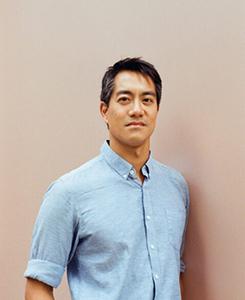
Mike Tsang
Mike has over 20 years of experience across strategic planning, financial management and systems optimisation.
Mike is currently Director of Finance and Accounts at ARIA, the new R&D funding agency built to unlock scientific and technological breakthroughs that are not developed elsewhere in the UK research funding landscape.
Previously he worked at the Francis Crick Institute, where he built out their finance team through a rapid growth phase.
He started his career in Big Four financial services audit before moving to the non-profit sector, working for an international non-governmental organisation specialising in healthcare service provision across Asia and Sub-Saharan Africa.
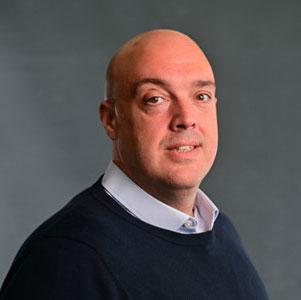
Dr Ian Walker
Ian is a member of the executive board at Cancer Research UK (CRUK) responsible for developing and implementing strategic priorities across policy, information and communications.
He has over 20 years of combined experience dedicated to advancements in cancer prevention, diagnosis, and treatment, working across commercial, research, health and public sectors.
Ian also brings a wealth of relevant experience having held trustee or Non-executive positions in biotech, charity and medical organisations.
Ian is a scientist by background, holding a Biochemistry BSc with honours and a PhD from the University of Leeds. He also holds an MBA with distinction from Warwick Business School and has completed an executive education programme at Harvard Medical School on Leading Digital Transformation in Health Care.
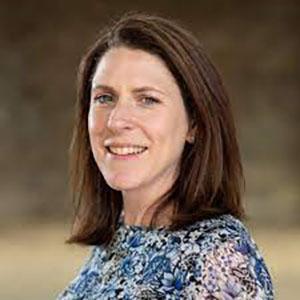
Tamsin Webster
Tamsin has held a number of senior level roles in HR in SME's and global corporates including BlackRock, UBS and Lloyds Banking Group. In her current role at ECI Partners, she oversees the entire employee lifecycle which includes recruitment, performance management, talent development, remuneration and learning and development.
Tamsin is an experienced leadership coach and brings the knowledge of leadership development, employee engagement, organisation design and governance to create the structure and capability needed to support business transformation, at all stages of growth or transition.
Tamsin has built a strong understanding of working in regulatory environments having worked in Financial Services and the Telecoms industry during times of significant change. Tamsin is a qualified project manager, has a degree in Psychology from University of Kent, a MA in Coaching and a MSc in Viticulture and Oenology.
Science Advisory Board members
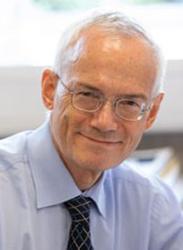
Professor Geoffrey L. Smith (Chair)
Geoffrey L. Smith is a Principal Investigator at the University of Oxford.
He obtained his PhD (1981) working with influenza virus at NIMR, London. Then as a postdoc at NIH, USA (1981-4) he developed vaccinia virus (the smallpox vaccine) as an expression vector and established the principle of using genetically engineered viruses as live vaccines. He continued studying poxviruses at Cambridge (1985-1989), Oxford (1989-2000), Imperial College London (2000-2011), Cambridge (2011-2022) and again at Oxford (2023 to present). His research group studies the interactions of poxviruses with the host cell and immune system.
Previously, he was Chair of the World Health Organization Advisory Committee for Variola Virus Research; Chair of the Scientific Advisory Board (SAB) of the Centre for Structural and Systems Biology, Hamburg; Chair of the Royal Society Committee for Scientific Aspects of International Security; Chair of the SAB of the Friedrich-Loeffler Institute (German Ministry for Food and Agriculture); a member of the University Research Grants Council, Hong Kong; a Governor of the Lister Institute; and President of the International Union of Microbiological Societies.
Currently he is Chair of the SAB of The Pirbright Institute. He is a Fellow of the Royal Society and Member of Leopoldina - the German National Academy of Sciences.
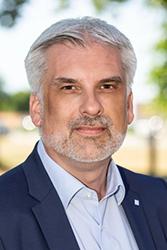
Professor Martin Beer
Martin Beer was born in Erlangen and graduated in Veterinary Medicine in 1992 in Munich.
In 1995, he received his PhD from the Ludwig-Maximilians-University in Munich studying the T-cell immunity against bovine viral diarrhea virus (BVDV). In 2000, Martin moved to the Friedrich-Loeffler-Institut (FLI) as head of the reference laboratory for bovine herpesvirus type 1 infections and continued his work on BVDV and other pestiviruses.
Since 2004, he has been Head of the Institute of Diagnostic Virology at the FLI, working with transboundary animal diseases, zoonoses and emerging diseases like avian influenza virus, Schmallenberg virus or bornaviruses. Modern diagnostics, molecular epidemiology and pathogenesis studies with transboundary viral diseases (e.g. bluetongue virus and African swine fever virus) and viral zoonoses (e.g. poxviruses and influenza viruses) have been a major focus of his research for more than 20 years.
For selected viruses, the development of strategies for immunoprophylaxis is an important research goal. A special feature is the work with animals including livestock animals under BLS3 and BSL4 (animal) conditions. Over the past few years, workflows for virus discovery using next-generation sequencing (NGS) based metagenomics have been developed and several new viruses identified and further characterised. NGS was also used to generate whole-genomes of important viruses for phylogeny and molecular epidemiology. In addition, new vaccine strategies were developed, e.g. for classical swine fever virus or avian influenza viruses.
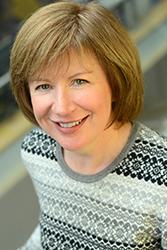
Professor Mary Cameron
Mary Cameron is a Professor of Medical Entomology in the Faculty of Infectious and Tropical Diseases, London School of Hygiene & Tropical Medicine (LSHTM). She obtained a BSc in Zoology in 1983, and a PhD in Entomology in 1987, from the University of London.
Mary has over 35 years’ experience in delivering international-level field and laboratory research focusing on the surveillance and control of a wide range of vector-borne diseases, particularly leishmaniasis. During this time, Mary has developed strong collaborative networks on neglected tropical diseases in multiple disease-endemic countries.
She is presently the Principal Investigator (PI) of the Bill and Melinda Gates Programme: Setting the Post-Elimination Agenda for Kala-azar in India (SPEAK India); and the LSHTM PI on a collaborative project led by the Royal Danish Academy of Fine Arts Schools of Architecture Design & Conservation with the Ifakara Health Institute, Tanzania, funded by the NoVo Foundation.
Externally, Mary has held several advisory roles. Current roles include Member of the WHO-TDR Working Group for the Development of ‘The Terms of References for Centres of Reference in Medical Entomology’; Member of the World Health Organization (WHO) Guidelines Development Group; Member of the WHO Regional Technical Advisory Group to support the Kala-azar elimination programme in the South-East Asia Region; and Vice-president of an international grant-funding panel. Mary is also a co-founder and Director of LSHTM’s first spin-out company, Vecotech Ltd, which is now operating as Arctech Innovation Ltd.
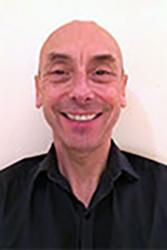
Professor Gary Entrican
Professor Gary Entrican is an Immunologist with a focus on the development of vaccines and diagnostic tests for the control of infectious diseases of ruminant livestock.
He has developed many immunological tools and technologies, including kits for in vitro differentiation of ruminant dendritic cells and cytokine ELISAs during his time at Moredun Research Institute (1986-2019). He produced a panel of pestivirus-specific monoclonal antibodies and developed a first-generation diagnostic ELISA employed in the bovine viral diarrhoea virus (BVDV) eradication programme in Scandinavia in the 1990s. He led a team investigating chlamydial abortion in sheep and identification of Th1-type responses as immune correlates of protection for novel sub-unit vaccine design; and managed a cross-Institute Work Package within the Scottish Government Strategic Research Programme.
He is now Honorary Professor at The Roslin Institute within the College of Medicine and Veterinary Medicine at The University of Edinburgh. He is a member of the Scientific Committee of the STAR-IDAZ International Research Consortium (2017-present) and leads the Vaccinology Working Group.
He has chaired several UKRI BBSRC Panels, including the COVID-19 Agile Response and Endemic Livestock Disease Panels. He maintains strong interests in the values of Equality, Diversity and Inclusion and the creation of positive Research Cultures.
Professor Mark Harris
Mark Harris obtained a degree in Biological Sciences from Plymouth Polytechnic and then studied for a PhD in Virology at the Institute of Virology, University of Glasgow. After a post-doc position at the NERC Institute of Virology in Oxford, he returned to Glasgow to a post-doc position in the MRC Retrovirus Research Laboratory, working on HIV with Prof Jim Neil. He was awarded an MRC AIDS Directed Programme Senior Fellowship in 1995 and subsequently took up a lectureship at the University of Leeds in 1997.
There he established a research programme in hepatitis C virus, funded by BBSRC, MRC, Wellcome and industry. In 2011 he was awarded a Wellcome Investigator Award and broadened his research portfolio to include alphaviruses, Ebolavirus and more recently SARS-CoV-2. In 2024 he was awarded a Wellcome Discovery Award. His research interests span virus genome replication and assembly, innate immunity and development of antiviral agents, the latter in collaboration with medicinal chemists. Over the past decade he has also established productive collaborations with researchers in Brazil, particularly focused on novel antiviral agents.
He has served on a number of grant awarding panels including those for the MRC Non-Clinical Fellowships, Medical Research Foundation Emerging Leaders Prizes and European Research Council Advanced Grants. He has also served the Microbiology Society in a number of roles including as a member of Council, Chair of Scientific Conferences Committee, Editor-in-Chief of Journal of General Virology and most recently as General Secretary of the Society.
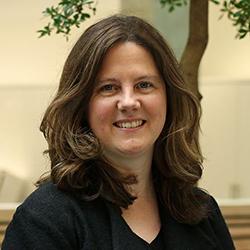
Professor Deirdre Hollingsworth
Deirdre Hollingsworth is a Professor of Infectious Disease Epidemiology at the Big Data Institute in the University of Oxford.
She develops mathematical, statistical and computational models which inform disease dynamics for a range of viruses, bacteria and helminths. She is an expert at translating these analyses to inform public health policy at national and international policy levels, including for the World Health Organization.
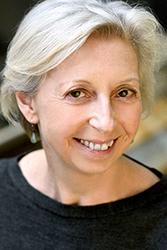
Professor Eleanor M. Riley, BSc, BVSc, PhD, FRSB, FMedSci
After training in Veterinary Medicine and Pathology, Eleanor obtained her PhD in Immunology and Parasitology and spent five years at the Medical Research Council Laboratories in The Gambia.
Eleanor then moved to the University of Edinburgh as a Wellcome Trust Senior Research Fellow. She was appointed to a Personal Chair in Immunology of Infectious Diseases at the London School of Hygiene and Tropical Medicine in 1998, where she was Head of the Department of Immunology and Infection.
In September 2017, Eleanor moved back to University of Edinburgh to take up the role of Director of the Roslin Institute. In 2020, she moved to the School of Biological Sciences where she is now Professor Emeritus of Immunology and Infectious Disease.
Eleanor’s research focused on mechanisms of immunity to malaria; how the immune response can contribute to disease; and how malaria affects resistance to other infections. Eleanor also has a long-standing interest in natural killer (NK) cells and their role in resistance to infection.
Eleanor is a Fellow of the Royal Society of Edinburgh and the Academy of Medical Sciences and was awarded a CBE in June 2023. She is currently a member of the Governing Council of the Medical Research Council.
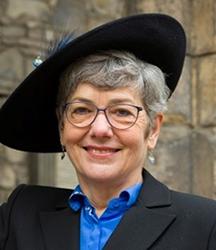
Professor Helen Sang
Helen Sang received a degree in Natural Sciences and a PhD in Genetics from Cambridge University. She continued developing a research career with the award of a SERC-NATO Fellowship at Harvard University, followed by an MRC Fellowship at the University of Edinburgh.
Helen was appointed as a Principal Investigator at The Roslin Institute, where her main research focus has been the development of technologies for genetic modification of the chicken which are applied in basic biomedical research, biotechnology. She was appointed Personal Chair in Vertebrate Molecular Development in 2009. Her research has been supported by grants from the BBSRC, MRC, Wellcome Trust and industry.
In addition to her research, Helen has a strong commitment to Public Engagement with Research and led the Roslin Institute’s Athena SWAN (gender equality) activities, resulting in achieving a Gold Award.
Helen has been a member of several BBSRC committees and the BBSRC Council; and is currently a member of the Houghton Trust, which supports researchers in the area of avian diseases. She is a Fellow of the Royal Society of Biology and the Royal Society of Edinburgh and was awarded an OBE in 2019 for services to food security and bioscience for health. Helen now holds Emeritus status from the University of Edinburgh.
Professor Emma Thomson, PhD FRCP RSE OBE
Emma Thomson is Director of the MRC–University of Glasgow Centre for Virus Research (CVR) and Clinical Professor of Infectious Diseases. She specialises in viral evolution and the detection of emerging infections, leading research groups in the UK and East Africa that apply next-generation sequencing to identify new pathogens and strengthen local diagnostic capacity. She also works as an NHS consultant in infectious diseases and internal medicine in Glasgow.
Professor Thomson has contributed extensively to national and international advisory work, including serving on NERVTAG, the UK Vaccine Task Force expert group on viral genomics, and WHO guideline and technical groups. During the COVID-19 pandemic she was awarded an OBE for services to the NHS and has since played a leading role in responses to SARS-CoV-2, mpox, and paediatric hepatitis. She is a Fellow of the Royal Society of Edinburgh and continues to advise government and global health organisations on emerging viral threats.
Professor Paul Klenerman
Paul Klenerman trained in medicine at Cambridge and Oxford and specialised in infectious diseases. He has been funded mainly by the Wellcome, initially working on HIV with Andrew McMichael and Rodney Phillips, then with Rolf Zinkernagel and Hans Hengartner in Zurich on LCMV and returning to Oxford to set up studies on T cells in chronic infections such as HCV and CMV. His group have worked on vaccines, especially adenoviral vector vaccines and the types of memory induced, including memory inflation. He currently has studies looking at unconventional T cells such as MAIT cells in infectious diseases and cancer.

